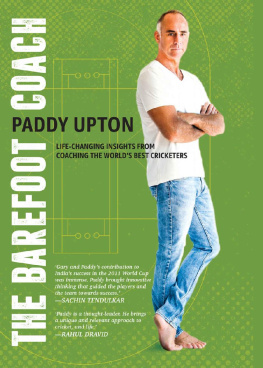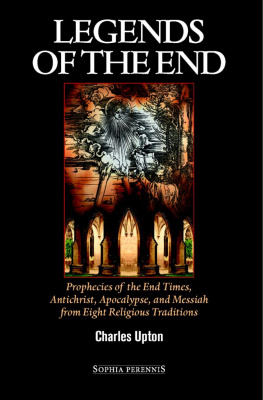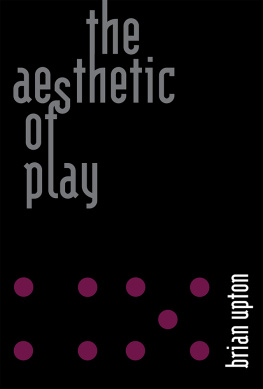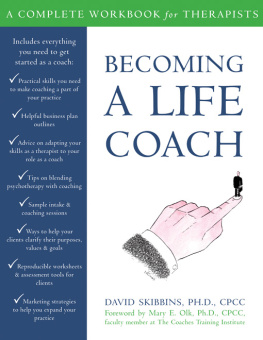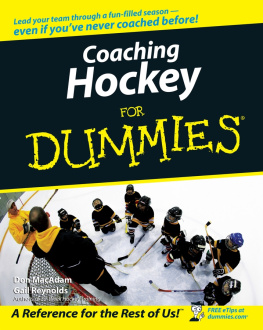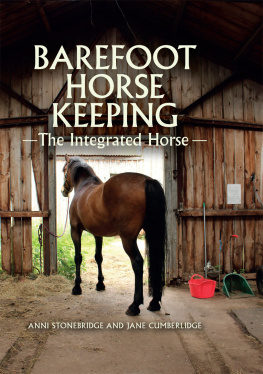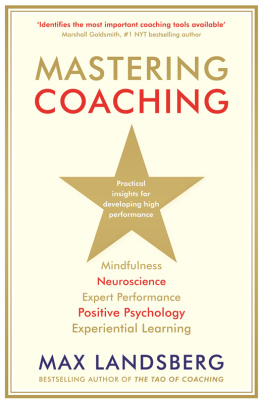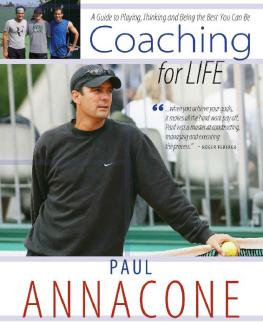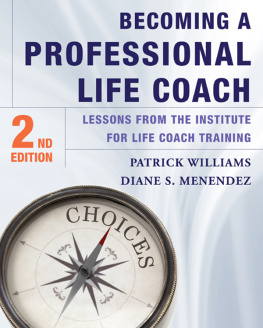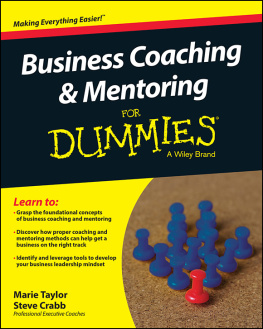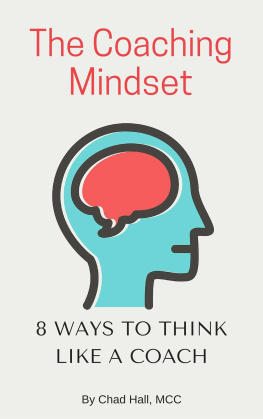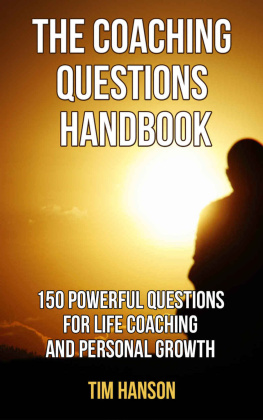Upton - The barefoot coach: life-changing insights from coaching the worlds best cricketers
Here you can read online Upton - The barefoot coach: life-changing insights from coaching the worlds best cricketers full text of the book (entire story) in english for free. Download pdf and epub, get meaning, cover and reviews about this ebook. City: South Africa, year: 2019, publisher: Westland Sport, genre: Home and family. Description of the work, (preface) as well as reviews are available. Best literature library LitArk.com created for fans of good reading and offers a wide selection of genres:
Romance novel
Science fiction
Adventure
Detective
Science
History
Home and family
Prose
Art
Politics
Computer
Non-fiction
Religion
Business
Children
Humor
Choose a favorite category and find really read worthwhile books. Enjoy immersion in the world of imagination, feel the emotions of the characters or learn something new for yourself, make an fascinating discovery.
- Book:The barefoot coach: life-changing insights from coaching the worlds best cricketers
- Author:
- Publisher:Westland Sport
- Genre:
- Year:2019
- City:South Africa
- Rating:5 / 5
- Favourites:Add to favourites
- Your mark:
- 100
- 1
- 2
- 3
- 4
- 5
The barefoot coach: life-changing insights from coaching the worlds best cricketers: summary, description and annotation
We offer to read an annotation, description, summary or preface (depends on what the author of the book "The barefoot coach: life-changing insights from coaching the worlds best cricketers" wrote himself). If you haven't found the necessary information about the book — write in the comments, we will try to find it.
The barefoot coach: life-changing insights from coaching the worlds best cricketers — read online for free the complete book (whole text) full work
Below is the text of the book, divided by pages. System saving the place of the last page read, allows you to conveniently read the book "The barefoot coach: life-changing insights from coaching the worlds best cricketers" online for free, without having to search again every time where you left off. Put a bookmark, and you can go to the page where you finished reading at any time.
Font size:
Interval:
Bookmark:


Published by Westland Publications Private Limited 1st Floor A Block, East Wing, Plot No. 40, SP Info City, Dr. MGR Salai, Perungudi, Kandanchavadi, Chennai 600096
Westland Sport, the Westland Sport logo, Westland and the Westland logo are trademarks of Westland Publications Private Limited, or its affiliates.
Copyright 2019 Paddy Upton Paddy Upton asserts his moral rights to be identified as the author of this work.
All rights reserved
No part of this book may be reproduced, or stored in a retrieval system, or transmitted in any form or by any means, electronic, mechanical, photocopying, recording, or otherwise, without express written permission of the publisher.
ISBN: 9789387894983
CONTENTS
www.thebarefootcoach.net
In the mid-1990s, I was living the dream life. I was travelling the world with the South African cricket team as crickets first ever full-time fitness trainer, and working with the late South African captain Hansie Cronj and the late and highly respected coach Bob Woolmer.
It was my first real job, which I had been offered while studying for a PhD in Sport Science at the University of Cape Town, in my home city. Accepting it at the age of twenty-five meant having to retire from my cricket and rugby-playing career and to take my studies onto the road with me as I joined my new travel partners: Hansie, Allan Donald, Gary Kirsten, Jacques Kallis, Brian McMillan, Dave Richardson, Mark Boucher, Lance Klusener and Jonty Rhodes, to name a few.
Over the next few years I became friends with most of the players, many of whom I already knew from having played with or against them. Travelling and working together brought us even closer. I was very well paid to watch international cricket at the worlds best stadiums and from the best seats in the house. I met and sometimes had a drink with greats like Sachin Tendulkar, Rahul Dravid, Shane Warne, Steve Waugh and Brian Lara. I met the Queen of England in person and twice met President Nelson Mandela. We got free tickets to whichever music concert was on in the city we were in. We stayed at the best hotels and, several nights a week, ate at the best restaurants in Mumbai, Sydney, London, Barbados, Auckland, Colombo, Cape Town, Karachi, Dubai and others. Most times, the restaurant manager would come over, meet the famous cricketers I was dining with, and announce that the meal was on him, as his way of honouring us.
We would often frequent the citys popular night spots after a days play. In those days, we played less cricket. The players didnt all conduct themselves as professionally as they do today. Most significantly, there were no cell phone cameras and, of course, social media was non-existent.
This meant there were more opportunities for night-time fun than are available to sportspeople today. The group I was with always attracted the lions share of female attention in the pub or nightclub. Oakley, the sports equipment company, gave me free sunglassesmore pairs than I could wear. The guys from Nike would invite me to load up a trolley of free clothes and shoes a few times a year, and the South African telecom company MTN gave me free cell phones and airtime. Whats more, although employed full-time between 1994 and 1998, I enjoyed about four months of paid leave every year. I was, indeed, living the dream.
It was during the Australian tour of 1997 that I became vaguely aware that something was missing. At the time, I didnt understand, nor could I explain, what that something missing was.
Looking back, it was the beginning of an emptiness somewhere in the pit of my stomach. As I touched this void within myself, I recall thinking that I could sense it in some of the players too. More tangibly, I couldnt get rid of the feeling that the individual cricketersand the team as a wholewere performing below their potential. I could not say how or why, but the sense that things could be a whole lot better was strong.
We were the fittest team in the worldthe only team with a full-time fitness trainer, after all. Under the visionary Bob Woolmer, we were a very innovative team. With seven players who were university graduates, we were also a highly educated team, and we had great talent. Everything we could do to be the best in the world at the time was being done; there were neither obvious flaws nor problems in the system.
In fact, other than occasional personality clashes and power games, relations within the team were particularly healthy and professional. Despite all this, I felt we were not where we could bethat there was something missing.
I knew I wanted to resign, but did not know why. I also had no sense of where, or what, I would move to next. I recall the day I told Hansie of my decision. The two of us were driving from George to play a One Day International (ODI) in Port Elizabeth. The team flew, but Hansie and I drove because we wanted to bungee jump from the 216 metre-high Bloukrans Bridge. On the same day that we took the plunge and jumped off that bridge in early 1998, I took the plunge and resigned from my dream job.
I left, not sure what I would do next, and with no clue about where to look to find the something missing, within me or within the team.
Over the next three years, as I worked towards submitting my PhD thesis on the prevention of schoolboy rugby injuries, trained a professional rugby team and backpacked across Southeast Asia for six months on a budget of eight US dollars a day, the search for the answer to the something missing remained active at the back of my mind.
Sometime in 1999, I recall sitting in a dingy Vietnamese Internet caf, mulling over a recent and profound insight. I had been on the road for about four months by then, sleeping in cheap youth hostel dormitories and travelling and eating as cheaply as possible. Since nobody knew cricket or cricketers in Vietnam, Laos, Cambodia or Thailand, no one was impressed with my credentials. And no one ever asked me what I did. It was not relevant. Fellow travellers were interested in the kind of person I was. No one cared about the number of degrees I hadthey never even asked if I had finished school. I would often sit cramped up next to someone on a third-class train trip or on the roof of an overcrowded bus. We would talk for an entire day without either of us ever asking the others name. It did not matter what our names were.
Sitting in that Vietnamese caf, I typed these words: Resigning from the South African cricket team and becoming a complete nobody in the subculture of the international backpackers world has given wind to the sails of my soul. I felt more alive and fulfilled in a world that made no distinction between high school dropouts and postgraduates; between so-called successful business people and barmen; between the rich and the poor. This subculture was equally unconcerned about nationality, creed, colour and religion.
It was then that the thought occurred to me: The international cricket world had been a playground for my ego. It had been about looking good, appearing to be in control, always seeming happy, forever smiling and being the popular guyand I had played that game well. I had been frolicking in the shallow and superficial depths of a so-called dream life. I had plastered on a permanent smiley face mask, and many had envied me.
Yet, somehow, it wasnt the dream I had expected. I cant say exactly what I had hoped to gain from being apparently successful and almost famous by association, but I guess I had hoped it would at least feel as good as it looked. Only, it didnt.
Next pageFont size:
Interval:
Bookmark:
Similar books «The barefoot coach: life-changing insights from coaching the worlds best cricketers»
Look at similar books to The barefoot coach: life-changing insights from coaching the worlds best cricketers. We have selected literature similar in name and meaning in the hope of providing readers with more options to find new, interesting, not yet read works.
Discussion, reviews of the book The barefoot coach: life-changing insights from coaching the worlds best cricketers and just readers' own opinions. Leave your comments, write what you think about the work, its meaning or the main characters. Specify what exactly you liked and what you didn't like, and why you think so.

